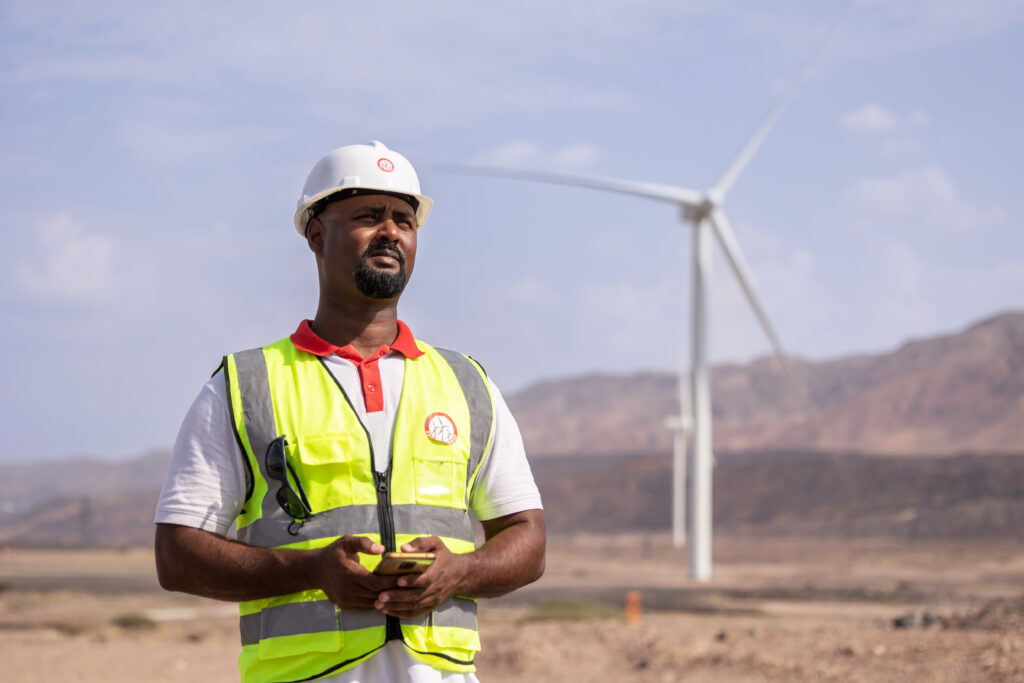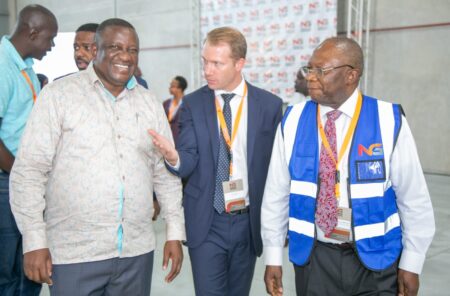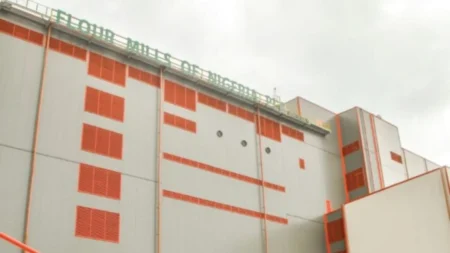- AFC’s landmark wind farm in Djibouti set the country on a path to becoming the first African country fully powered by renewable energy.
- Last year, the corporation committed to overhauling Kinshasa’s mass transit system to enhance mobility.
- 2023 saw the AFC welcome three new members—Ethiopia, Burundi, and Sao Tome and Principe.
As the world looks into Africa to launch the next development phase, the Africa Finance Corporation (AFC) is increasingly emerging as a participant and a pacesetter in African infrastructure investments.
Last year marked a watershed moment for the organization, as AFC’s impact was evident in an ambitious slate of projects that span the spectrum of Africa’s developmental needs, from renewable energy sources and transport corridors to mining and climate resilience initiatives.
AFC’s impact on key economic corridors
Last year was a standout moment for AFC, with the corporation not merely navigating but thriving amidst growing global tensions, inflationary pressures, and the spectre of debt distress for African economies.
By focusing on strategic investments across diverse sectors critical to Africa’s structural and sustainable development, AFC bolstered its growth and underscored its role in the continent’s transformation.
Huge milestones were registered across various fronts, from Djibouti’s inaugural wind farm project, setting the country on a path to becoming the first African country fully powered by renewable energy, to the transformative Lobito Corridor rail project.
This project, in particular, amplified AFC’s knack for fostering international collaborations, bringing together the US, the European Union, and the governments of Angola, the Democratic Republic of Congo (DRC), and Zambia to create a vital industrial and transportation spine connecting the Atlantic and Indian Oceans.
Additionally, AFC’s partnership with Arise IIP in expanding the Arise Special Economic Zones across 10 West and Central African countries shows the financial institution’s strategic push towards enhancing food security, bolstering the textiles industry, and optimizing resource usage.
These initiatives underscore AFC’s commitment to delivering solutions that are not only impactful but also sustainable and inclusive.
“At the heart of AFC’s mission is our commitment to deliver impactful solutions for Africa, and this guides every investment we undertake,” said Samaila Zubairu, AFC’s President and CEO.
“AFC’s impact is evident in our solutions-oriented approach and unwavering commitment to realising transformative projects across Africa—infrastructure projects like the Red Sea Power Wind Farm in Djibouti, the Arise IIP industrial zones, and the Lobito transport corridor that are reshaping the landscape, fostering sustainable development for local communities, and altering the economic trajectory of countries.”
Other projects undertaken in 2023 were the joint initiative with Xcalibur Multiphysics to advance the mapping and usage of Africa’s mineral wealth, creating more value for economies, helping to diversify economies, and accelerating the switch to clean energy.
In DRC, for instance, the Corporation has committed to helping overhaul Kinshasa’s mass transit system to enhance mobility and cut pollution through a partnership with Trans Connexion Congo.
A historic commitment of $253 million from the Green Climate Fund to the AFC Capital Partners’ Infrastructure Climate Resilient Fund (ICRF) marked a significant step toward developing sustainable, climate-resilient African infrastructure.
Read also: Lobito Corridor: a US-backed mining catalyst in DRC and Zambia
Financial resilience and strategic divestments
“In a year marked by global economic and geopolitical complexities, AFC has stood as a beacon of resilience, delivering value to all stakeholders while creating jobs and prosperity through structural transformation across Africa,” said Mr Zubairu.
Amid these expansive projects, AFC’s financial health remained robust, with annual profits soaring by 15.3 per cent to $329.7 million and its total assets witnessing a 17.3 per cent uptick to $12.34 billion. These figures reflect the corporation’s financial prudence and its strategic acumen in navigating the often-turbulent waters of international finance.
One of the standout financial manoeuvres of the year was AFC’s strategic exit from the Atlantic Terminal Port in Takoradi, Ghana, showcasing its adeptness at timely divestments. The sale to a major global ports operator, Yilport, shows AFC’s ability to spot when investments have matured to a point where divestment aligns with its broader strategic goals.
AFC’s expanding horizons
Last year also saw the AFC welcoming three new members—Ethiopia, Burundi, and Sao Tome and Principe—effectively expanding the organization’s influence and reinforcing its position as a cog of Africa’s infrastructural development.
Equity investments, in addition from the governments of Côte d’Ivoire, Benin and Botswana, Cameroon’s Caisse Nationale de Prévoyance Sociale (CNPS), and SBM Capital Market Securities Ltd in Mauritius helped increase AFC’s total equity by 26.7 per cent to $3.42 billion.
The onboarding of six new sovereign shareholders, including Turk Eximbank as its first non-African shareholder, also underscores the corporation’s appeal and trustworthiness to a broad spectrum of global partners.
What’s more, AFC’s ability to attract funding, for instance, the $625 million syndicated loan and other lines of credit from global institutions such as the African Development Bank and a €50 million facility from Cassa Depositi e Prestiti, signals its credibility and the confidence that it has on the global stage.
Outlook shows hope and progress
AFC says it remains focused on achieving a balanced growth portfolio, pioneering financing solutions while enhancing its operational capacity as it catalyses change across Africa.
“As AFC charts its course to further elevate our impact across the continent, we remain deeply appreciative of the unwavering support of our stakeholders and the dedication of our team, whose passion drives our mission forward,” said Mr Zubairu. “With a refreshed strategic agenda emphasizing balanced portfolio growth, innovative financing, and enhanced operational capacity, AFC is well-positioned to shape a robust future for African infrastructure and development.”











